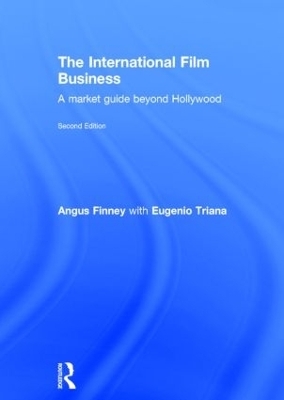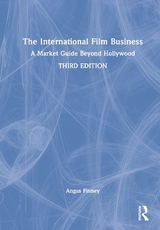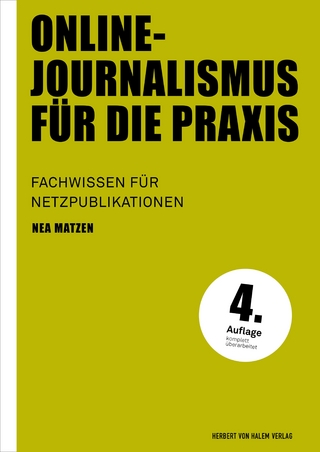
The International Film Business
Routledge (Verlag)
978-0-415-53153-5 (ISBN)
- Titel erscheint in neuer Auflage
- Artikel merken
The International Film Business:
describes and analyses the present structure of the film industry as a business, with a specific focus on the film value chain
discusses and analyses current digital technology and how it potentially may change the structure and opportunities offered by the industry in the future
provides information and advice on the different business and management skills and strategies
includes case studies on a variety of films including The Guard (2011), The King’s Speech (2010), The Best Exotic Marigold Hotel (2012), Cloverfield (2008), Pobby & Dingan (aka Opal Dream, 2005), Confessions of a Dangerous Mind (2002), The Reckoning (2002)and The Mother (2003), and company case studies on Pixar, Renaissance, Redbus and Zentropa. Further case studies on films that failed to go into production include Neil LaBute’s Vapor and Terry Gilliam’s Good Omens.
Taking an entrepreneurial perspective on what future opportunities will be available to prepared and informed students and emerging practitioners, this text includes case studies that take students through the successes and failures of a variety of real film companies and projects and features exclusive interviews with leading practitioners in all sectors of the industry, from production to exhibition.
Angus Finney is a course director at the London Film School’s and Exeter University’s MA in International Film Business; and a visiting lecturer on film and media businesses at Judge Business School, Cambridge University; Royal Holloway, University of London and Bath Spa University. He works with the UK’s Film London, Creative England, Film Agency Wales, Creative Skillset and the Film Distributors’ Association as a course director and trainer. Outside the UK Finney works with the South African National Film and Video Foundation, the Canadian Media Producer’s Association, the Irish Film Board and has also worked for the Abu Dhabi Film Commission as a trainer and consultant. He is Film London’s Project Manager for the Production Finance Market and was Managing Director of Renaissance Films (1999-2005). His previous books include: Developing Feature Films in Europe: A Practical Guide (1996), The State of European Cinema (1996) and The Egos Have Landed: The Rise and Fall of Palace Pictures (1996). Eugenio Triana has an MA in history from Trinity College, Cambridge University, and an MSc in Film Business from Cass Business School, City University London. He previously acted as researcher for The International Film Business: A Market Guide Beyond Hollywood (2010) and has worked in film production (Celtic Films, Tiger Aspect, Apollo Media).
Part 1: The film value chain 1. Global film: a changing world 2. The Film Value Chain Model and Current Restructuring 3. Film development 4. Green lighting films 5. Sales and markets 6. Producer-distributor relationships 7. Film finance 8. Co-production 9. Exhibition and the changing cinema experience Part 2:Users and the changing digital market 10. Users, consumer behaviour and market research 11. Traditional film marketing 12. Digital production 13. Digital distribution 14. Film marketing through the Internet Part 3: Business and management strategies 15. Business strategy 16. Entrepreneurs and investors in the film industry 17. The challenge of creative management 18. Project management 19. Business models 2.0 20. Case study: interview with Simon Franks, Redbus Group 21. Conclusion Glossary Notes
| Verlagsort | London |
|---|---|
| Sprache | englisch |
| Maße | 174 x 246 mm |
| Gewicht | 680 g |
| Themenwelt | Kunst / Musik / Theater ► Film / TV |
| Sozialwissenschaften ► Kommunikation / Medien ► Journalistik | |
| Wirtschaft | |
| ISBN-10 | 0-415-53153-5 / 0415531535 |
| ISBN-13 | 978-0-415-53153-5 / 9780415531535 |
| Zustand | Neuware |
| Informationen gemäß Produktsicherheitsverordnung (GPSR) | |
| Haben Sie eine Frage zum Produkt? |
aus dem Bereich



